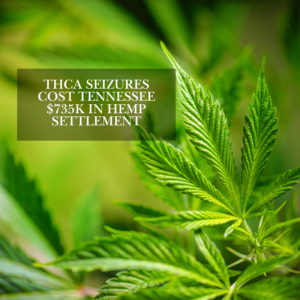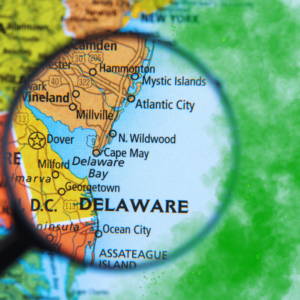California Governor’s Hemp Restriction Plan Stalls for This Year

California’s Major Cannabis and Hemp Reform Bill Dies in Senate
A California legislative proposal aiming to enact significant changes to the state’s marijuana and hemp markets has been shelved for the current session. The bill, which was expected to be a major overhaul of how hemp-derived cannabinoids are regulated within the state, did not receive a vote in the Senate Appropriations Committee before the end-of-week deadline, effectively killing the measure for the year.
Governor Newsom’s Proposed Amendments
The bill, supported by Governor Gavin Newsom (D), sought to integrate hemp-derived cannabinoid products into California’s regulated marijuana market. This would have included allowing out-of-state hemp producers to sell their products in California, while also imposing stricter regulations on hemp products containing THC or other intoxicating cannabinoids. The proposed amendments aimed to address concerns about the largely unregulated market for hemp-derived products, such as those sold at gas stations and convenience stores.
Senate Committee Holds Bill Under Submission
Earlier this week, the Senate Appropriations Committee heard public comments on the bill’s financial implications and placed it on Thursday’s suspense calendar—a list of bills considered for final votes before the Friday deadline. However, the committee chair, Sen. Anna Caballero (D), chose not to call the bill, AB 2223, for a vote, leaving it held under submission and effectively dead for this legislative session.
Implications of the Proposed Amendment
Newsom’s proposed 44-page amendment, which was not formally introduced, would have required that hemp products with intoxicating cannabinoids be sold exclusively through state-licensed cannabis dispensaries. “Pure CBD” products, which contain no detectable levels of THC or other intoxicating cannabinoids, would have been classified as “non-intoxicating hemp” and could have remained available outside the cannabis dispensary system. The amendment also proposed banning synthetic cannabinoids and the retail sale of hemp flower in any form.
Opposition from Industry Stakeholders
The proposal faced opposition from various stakeholders, including licensed marijuana growers, hemp industry representatives, and medical patients. Licensed marijuana cultivators expressed concern that the bill would force them to compete with out-of-state hemp companies that would be allowed to sell in California without adhering to the same strict regulations. Parents of children who rely on hemp-derived CBD for medical conditions argued that the proposed regulations would limit access to essential treatments.
Advocacy Groups Push Back
The Origins Council, representing around 800 small and independent cannabis businesses across California, was a key organization opposing the measure. The group argued that Newsom’s amendments would fundamentally alter the state’s cannabis market by removing the requirement that high-THC products sold within the cannabis supply chain come from licensed cannabis cultivators. Origins Council policy chair Ross Gordon noted that the complexity of the amendments made it difficult for lawmakers to consider such significant changes so late in the legislative session.
Reactions to the Bill’s Demise
Newsom’s office did not immediately comment on the bill’s failure to advance, but in previous statements, the administration expressed ongoing efforts to close regulatory loopholes and enhance enforcement against illegal hemp products. The California Cannabis Industry Association (CCIA) criticized the decision to hold the bill, calling it a “terrible misstep” and warning that the outcome would have significant implications for the state’s cannabis industry, which has seen a decline in tax revenues while an untaxed and unregulated hemp market continues to grow.
Broader National Context and Federal Implications
The debate over how to regulate hemp-derived cannabinoids is not unique to California. Similar discussions are taking place at the federal level, where lawmakers are considering legislative provisions to impose a general ban on certain hemp-derived cannabinoids, such as delta-8 THC. The U.S. Hemp Roundtable, a national trade group, has been actively involved in these discussions and has criticized the rushed legislative process in California, arguing that the proposed changes would have banned nearly every hemp product by subjecting them to the same regulations as marijuana.
Future of Hemp and Cannabis Regulation
As California’s legislative session draws to a close, the failure of AB 2223 signals ongoing challenges in balancing the interests of the cannabis and hemp industries with public health and safety concerns. While the bill’s demise may provide temporary relief for hemp producers, the broader issue of how to regulate intoxicating hemp products remains unresolved. Stakeholders on all sides are calling for collaboration to develop equitable solutions that protect consumers, support small businesses, and ensure a fair marketplace.
What’s Next for California’s Cannabis Industry?
With the legislative session ending soon, it’s unlikely that significant regulatory changes will be made this year. However, the debate over hemp and cannabis regulation is far from over. Lawmakers, industry stakeholders, and advocacy groups will likely continue to push for reforms in the next session, potentially revisiting the complex issues surrounding hemp-derived cannabinoids, interstate commerce, and the integration of hemp into the regulated cannabis market.











